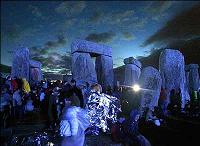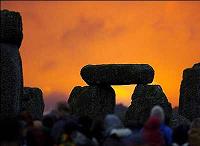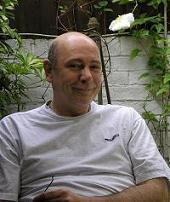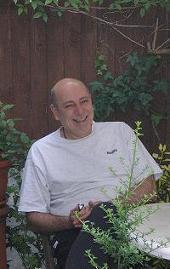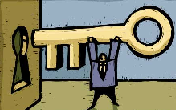
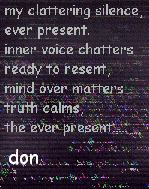
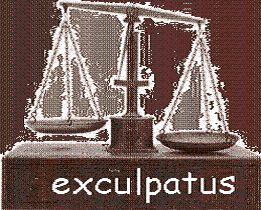
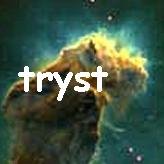

cont.

trust



June 26th 2006
copyright© don oddy
~ Forgiveness and Consequences ~ inside job done
What do we do when others wrong us in some way? Depending on the wrong, we have many responses to wrong doing, from small things to big catastrophes. Our response is the equal of the pain and suffering caused. When we are wronged in some way or as bad, when we wrong someone else, we all get to suffer, the amount of suffering really depends on how we deal with hurt, resentments and betrayal.
Small things and forgiveness are pretty easy with us, we develop a knack of forgiving people who are forgetful, absent minded, small cheats to truth where their intent is protecting our feelings. Or their own for that matter.
When someone is late finding me for a meeting, when someone is absent minded and forgets to include me in something I feel, is of no consequence, I donít mind, and forgiving is automatic, I donít feel harmed particularly, nor do they feel awkward of worried at my feelings. Its no big deal.
So why do I spend time thinking about forgiveness? Why bother. Do I care or am I not bothered by what others have done to me? And how am I feeling about my big mistakes, my failure to take account of loved ones and how do I feel about the cheating I have done over the years? As bad can be, although much of my absence from truth is met with minor and indiscrete values of pain, there are big ones in there like me not loving as others have loved me. And I do feel raw pain over things I have done against my moral understandings. The worst of all these things is letting others down and not being able to be with them, not able to include and love them as they might feel they deserve. And those are the things I feel are hardest to forgive towards me. A moral and very obvious set of situations which might need forgiveness.
And my misdemeanours? Squandering help offered over the years. Squandering assistance and support, because I was quite frankly mad with life. Mad at my own pain and loss and so was unable to bounce back to living as family and friends may have liked. I look back at choices I have had to redeem and put right relationships. Now I see I might have been better able if I had known what I know now. Maybe I could have been a better person, maybe I could have kept to a code of behaving consistent with others and their desires. But I could not, I was driven mad by circumstance, fear and denial. I was quite mad with fear I realise, and very unsure of living at all. Consequences are quite obvious, many friends and others I have known are absent in my life. And how do I feel about them now? I accept their absence, for they are best protected from the me I was, not real, burdened with all of life and nothing much to give in substance. I donít feel I was much of a person, incomplete and driven by everything thrown my way and never switching off to find out who I was. Other than a chameleon and prone to serve, I had lost my identity a long, long time ago. So as to others and their forgiving me, I accept there is no forgiveness of that person, who I was and accept their exclusion of me from their lives. My consequences are I have lost friendships I might have had, and their consequences, exclusion of an incomplete me, an absolutely reckless and incomplete me.
Is there any going back, maybe I can offer my explanation, it is too thin though for hurt and pain I have caused. And I truly donít feel it serves any good to try mend what was broken and if I did, I am unrecognisable. I can offer amends and offer my explanation. Yet it does not mitigate the things done, the feelings and the hurt. It does nothing to absolve what has been done by me or what others did to me. Consequently I do accept every outcome now and in the future of my conduct, and how this manifests. I accept the consequences, and I have no defence.
How can I resolve my issue of forgiveness on a personal level? I cannot change what I have done or expect others to make room for forgiving me. And how do I forgive others truly for any wrongs they have done me?
Forgive means we have power to let go the past and accept that something has changed. that we let go the past and indiscretions and crimes of petty or major magnitude. And power in relation to forgiveness is assuming we power over others to forgive as if they are some sort of vessel, as if they are less than we are and that we have superior and exceptional values and behaviour which place us as judges.
This is not good in my view, for we then segregate and make people who have wronged us less than we are. We assume that when we forgive we have right and justice on our side, that we are pure of heart and free from any indiscretion. That we are the moral arbiters of living. And this does not sit well in my conscience.
For in all conscience and good conscience I find it hard to decide what is right when we have to be equal in our dealings with each other.
Mitigation in our civilised world means we grade our views of indiscretion, we offer levels of judgment and we offer grades of forgiving. As if we are without our own need of forgiving, as if we are pure from it all too. No one is pure and still has the right to judge others in all good conscience.
If we all applied the same set of rules to ourselves and consequences of our actions against the law, we all have some forgiving to do. From speeding in a car to minor infringements we are not found out, there are things we have done which have never come to light.
Our moral indiscretions are abundant if we examine our behaviour, from intent in our heads to commission in reality. We all have cheated in some way, so our morality is there as a compass and some have moved off course, their consequences are always with them in memory as are mine. Not being found out is as bad as admission. For if we are moral in our good conscience we are haunted by our indiscretions. Or we degrade ourselves as less than equal by our denial and forgetting.
When we acknowledge and face our past, we can make amends simply. We choose a better path of living, we choose to be the person we feel is living to that code we hold to the good, we behave consistent with our beliefs and we do no harm with intent. We can always do harm when we cannot fit with others wishes hopes and dreams, that we cannot change.
When we realise our attitudes and behaviour need to change and we make our lives consistent with good conscience our opportunity to demonstrate and be that person we wish to be is beginning. We are able to change. When we defend our behaviours and attitudes from the past and deny our part in the outcomes, we are in a dilemma and stuck. We are most likely unforgiving in our own eyes as there is nothing to forgive, and others have long excluded us and have nothing to do with us as a consequence. And some get locked away or put to death with their crimes. Those are consequences, and we know them and ignore them at our peril.
So if we are equal in this world, then the problem of forgiving others is really quite moot. To forgive others still gives an edge we cannot really have. To forgive another who cheats on us for example, means we are superior in attitude and value. I have always found this particular quandary a problem. I have been the innocent more times than I can recall, and also the guilty, especially where others have been partners in their own right with others. And being a single person does not absolve behaviour. To be single, and in cahoots with another who is partner to another, I realise now is as bad as any form of cheating. I actually collaborated in cheating and lying.
I cannot ask forgiveness of anyone for that behaviour. And I can recognise what is right now, and as I have come to my senses and recognise my indiscretions, I donít ever want to be in that situation again. I have changed my attitude and my behaviour. And the forgiveness for me is from me. I have to forgive my mistakes and learn from them. If I do the same thing over and over, I donít forgive me. And as to others being forgiving, I reckon the best they might do is recognise the change in me. I donít think or feel they have any business forgiving me at all. And accept that exclusion is the consequence. And if there is a way to repair the relationships I heartily offer my sorrow and sadness at my behaviour. I resolve to be more consistent with good conscience and behave accordingly with love and friendship.
So when I was recently asked if I forgave another who had left me hurt to the point of complete breakdown, I said yes. At the same time as they asked my forgiveness I was completely taken aback. I had never thought it my place to forgive them. I did not feel I had superior wit or reason, I did not feel I had any right to hold them in contempt of me. I believed them still my equal and I felt sad they asked my forgiveness. I was distressed they thought I held them in such low esteem I would make them less human than me.
And this still bothers me, because I donít think or feel they will ever get over their own actions and consequences. That they are stuck in denial and stuck with running away from consequences. I felt so sad it broke me up all over again.
Forgiveness if we choose to, is a self determined activity for ourselves. We can review and evaluate our actions and behaviour in good conscience. We cannot absolve ourselves of responsibility and consequences, some which are as harsh as can be. But if we do forgive ourselves our life and actions, and we determine to make our present and future behaviour consistent with good conscience, then we apply forgiveness where we can, to ourselves. We forgive our human elements of strength and frailty, we live with consequences as they are, some let us live in society, others mean we are excluded and banished or locked up. We have to make the most of what we have, and we live according to good conscience.
How else do we progress as a civilisation, if we cannot forgive ourselves? We would die miserably and quickly for there is no one free from guilt or indiscretion.
When it is a question of forgiving others, we need to be sure what this means. Most of the time it means we judge. And most of the time we have no right to judge others. What we have right to judge is consequences of including or excluding people from our lives to greater or lesser degrees. This means we trust some people more and some less. Some people can be included close in our lives and others we keep out and excluded. And we work on evidence and their continued behaviour towards us.
I still feel sad even now, that when asked for forgiveness I said yes. And you know, I feel bad, because it was never my right to judge and make another feel less than me, to put them down where they never belonged and they felt less than me. They always belonged in my life as an equal, until they behaved in a way I could not live with. And still they are an equal, the consequence of the hurt and pain is loss of trust and consequently they are not part of my life anymore. Yet their impact is forever and I will love them till I die. I accept as a consequence, their view of forgiving is different to mine. I feel their way forward is to forgive themselves, reset their good conscience and live well and happily, and not with me. And the outcome either way is none of my business.
This topic came up in fellowship over the weekend. And there grumbles from the wronged and the perpetrators alike that forgiving others is almost impossible and resentments are boundless and recurring. And when we look or examine what we ask, it makes everyone unequal when we bestow the favour of forgiving.
In reality when we think we can forgive others, we are most like to be exacting some compensation we feel is due. We are collecting a debt of wrong doing against us. And there is the problem, there is no compensation worth accepting when we are taking a superior and aloof attitude to another.
We are giving up our humanity in forgiving where there is no equality.
So my argument may be unpopular, but holds me to my good conscience. I can work out how to forgive myself, and in good conscience determine how to live more securely to my values and principles. I cannot hold others to that code or judge them. If others feel they have behaved as they determine, to good or bad, their redemption I reckon is in their own hands.
So to my ex lover who asked forgiveness, the answer is long winded but comes down to this. We you have room in your own mind and good conscience to determine if there is anything to forgive, then work out what that might be and how this may affect your present and future living. And if it ever has anything to do with me again, then we can talk. Until then its absolutely none of my business. And the consequences are what they are.
My view is the best we can do is forgive ourselves our part in all life and doings. To suggest we can forgive others is futile and arrogant either side of wrong or right. And always we live with the consequences.
Good conscience and truth are always available to determine the present and our conduct, our living and our redemption, provided of course our crimes and misdemeanours donít kill us along the way. We are always at the mercy of civilisation and its governance of our behaviour, and this consequence we live. One consequence is forever, and that is the person we are today.
May good conscience keep us safe and able to forgive as we learn and develop our being. May we be the equal of living and everyone. May we be open and accept our consequences as they are, let go and move on.
And in truth the serenity prayer of my fellowship holds good. I use the word God in this prayer as my good conscience, for I hope for equality in human doings and not some intervention from on high.
Our serenity prayer is:
God ( and for me good conscience )
Grant me the serenity
to Accept the things I cannot change,
Courage to change the things I can
And Wisdom to Know the difference
Copyright © Don Oddy



